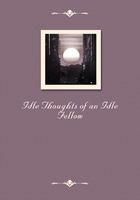
第14章 ON VANITY AND VANITIES.(2)
The truth is,we each of us have an inborn conviction that the whole world,with everybody and everything in it,was created as a sort of necessary appendage to ourselves.Our fellow men and women were made to admire us and to minister to our various requirements.You and I,dear reader,are each the center of the universe in our respective opinions.You,as I understand it,were brought into being by a considerate Providence in order that you might read and pay me for what I write;while I,in your opinion,am an article sent into the world to write something for you to read.The stars--as we term the myriad other worlds that are rushing down beside us through the eternal silence--were put into the heavens to make the sky look interesting for us at night;and the moon with its dark mysteries and ever-hidden face is an arrangement for us to flirt under.
I fear we are most of us like Mrs.Poyser's bantam cock,who fancied the sun got up every morning to hear him crow."'Tis vanity that makes the world go round."I don't believe any man ever existed without vanity,and if he did he would be an extremely uncomfortable person to have anything to do with.He would,of course,be a very good man,and we should respect him very much.He would be a very admirable man--a man to be put under a glass case and shown round as a specimen--a man to be stuck upon a pedestal and copied,like a school exercise--a man to be reverenced,but not a man to be loved,not a human brother whose hand we should care to grip.Angels may be very excellent sort of folk in their way,but we,poor mortals,in our present state,would probably find them precious slow company.Even mere good people are rather depressing.It is in our faults and failings,not in our virtues,that we touch one another and find sympathy.We differ widely enough in our nobler qualities.It is in our follies that we are at one.Some of us are pious,some of us are generous.Some few of us are honest,comparatively speaking;and some,fewer still,may possibly be truthful.But in vanity and kindred weaknesses we can all join hands.Vanity is one of those touches of nature that make the whole world kin.From the Indian hunter,proud of his belt of scalps,to the European general,swelling beneath his row of stars and medals;from the Chinese,gleeful at the length of his pigtail,to the "professional beauty,"suffering tortures in order that her waist may resemble a peg-top;from draggle-tailed little Polly Stiggins,strutting through Seven Dials with a tattered parasol over her head,to the princess sweeping through a drawing-room with a train of four yards long;from 'Arry,winning by vulgar chaff the loud laughter of his pals,to the statesman whose ears are tickled by the cheers that greet his high-sounding periods;from the dark-skinned African,bartering his rare oils and ivory for a few glass beads to hang about his neck,to the Christian maiden selling her white body for a score of tiny stones and an empty title to tack before her name--all march,and fight,and bleed,and die beneath its tawdry flag.
Ay,ay,vanity is truly the motive-power that moves humanity,and it is flattery that greases the wheels.If you want to win affection and respect in this world,you must flatter people.Flatter high and low,and rich and poor,and silly and wise.You will get on famously.
Praise this man's virtues and that man's vices.Compliment everybody upon everything,and especially upon what they haven't got.Admire guys for their beauty,fools for their wit,and boors for their breeding.Your discernment and intelligence will be extolled to the skies.
Every one can be got over by flattery.The belted earl--"belted earl"is the correct phrase,I believe.I don't know what it means,unless it be an earl that wears a belt instead of braces.Some men do.Idon't like it myself.You have to keep the thing so tight for it to be of any use,and that is uncomfortable.Anyhow,whatever particular kind of an earl a belted earl may be,he is,I assert,get-overable by flattery;just as every other human being is,from a duchess to a cat's-meat man,from a plow boy to a poet--and the poet far easier than the plowboy,for butter sinks better into wheaten bread than into oaten cakes.